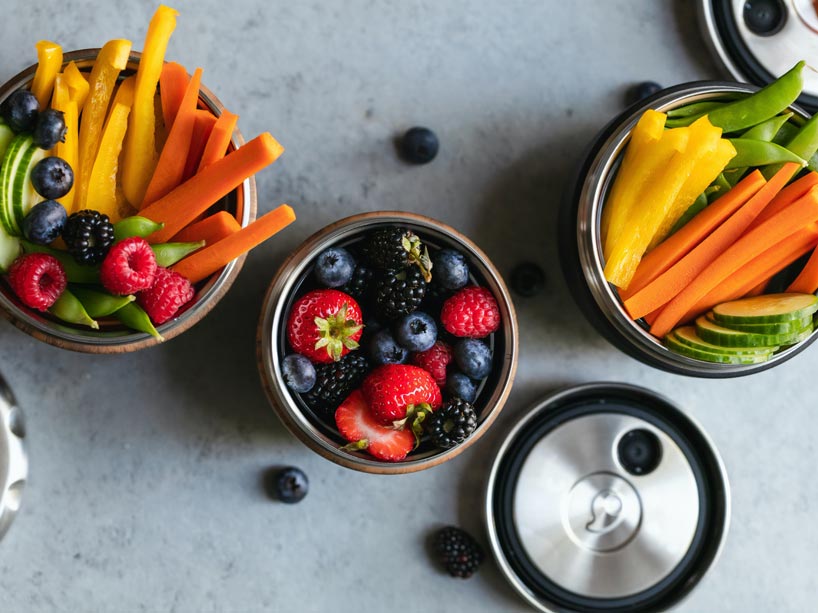One less worry: Ryerson donates food boxes to students

Ryerson’s biweekly food boxes will provide students fresh, healthy produce to alleviate food insecurity. Photo by S'well on Unsplash.
If you are a Ryerson student experiencing food insecurity and live in the Greater Toronto Area (GTA), you can (google form) join the waitlist for free, biweekly produce boxes (external link) . Food Services will do their utmost to support as many individuals as possible through this program.
Your Instagram feed has been taken over by budding chefs. Little wonder: food has become a source of comfort for many people sheltering at home around the world. But for those experiencing hardship during this time, buying food can be intensely stressful.
That’s why on April 20, Ryerson Food Services and Meal Exchange Canada (external link) (MX) began offering students biweekly food boxes (external link) through delivery partners like Foodshare (external link) . The boxes are full of fresh fruits and vegetables, helping students alleviate the financial, emotional and physiological stress caused by the global health crisis.
Made possible through the generous support of Ryerson's annual donors, the initiative is helping students who don’t have reliable access to healthy meals over a 12-week period. Ryerson students who took courses in winter 2020 and live in the GTA can complete the (google form) COVID-19 Food Support for Ryerson Students form (external link) to add themselves to the waitlist.
Associate Director of Food Services Marwan El Chafei, who is leading the initiative, knows exactly how important access to food is to well-being. Born and raised as a refugee, then living abroad alone as an international student, El Chafei can relate to these students on many levels.
“Imagine you have two options: eat or pay for your education. That’s what food insecurity looks like,” El Chafei explains.
El Chafei, who manages a team of 150 employees, oversaw changes to Ryerson’s extensive dining and catering operations during the transition to essential services on campus.
“Nutrition is directly related to your academic performance and mental well-being. Food plays a key role in supporting the university’s strategic objectives,” he says.
Imagine you have two options: eat or pay for your education. That’s what food insecurity looks like. – Marwan El Chafei, associate director of Food Services
El Chafei is still concerned for those students who continue to feel the impact of the global health crisis. On March 25, he reached out to MX, a student-driven organization that advocates for affordable and sustainable food options at colleges and universities, to see how his team can support Ryerson students in need. With Ryerson providing the funds, MX leveraged their networks and partnerships to manage the logistics of food collection, packaging and delivery to students.
“The food boxes provide fresh and local food to students who are struggling during this crisis, while also supporting local farmers and the local food economy,” says Brittany Maguire, Good Food Campus Lead at MX, who worked closely with El Chafei to launch the initiative.
“Students receiving boxes have the opportunity to connect with other students across the country, building community through the sharing of educational content and recipes for using fresh produce,” Maguire adds.
El Chafei hopes the food boxes that reach students will make a difference during this challenging time. For those facing the greatest food insecurity, such as people who lost part-time or summer employment, or face overwhelming family commitments, every bit of help counts.
“If there’s any way Food Services can play a role – even a small role – in providing more support and keeping students’ academics on track, that would be a very positive outcome of this,” he says.